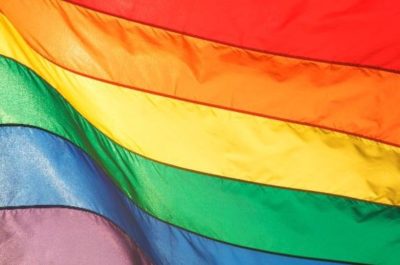I have a confession to make; I am disabled, and I like having sex. Sometimes in the shower, in the hallway, on the sofa, and in bed, but never in the kitchen because that’s just unhygienic. And it’s not what you think either. I do not just lay down and let my partner do all the hard work. Like all good sexual partners, I give as much as I get. The idea of a disabled person participating in and enjoying sexual relations is, however, incomprehensible to the general public.
The desexualisation of disabled people is a real, yet unspoken, obstacle to their equality. It means unconsciously denying or failing to recognise someone’s sexual or intimacy capabilities, interest and desires.[1] Nobody publicly says that wheelchair users are ugly or sexually incapable or cannot be a good partner for example.[2] It is also harder for disabled people to build relationships because of access and people’s attitudes. There can also be a fear that any relationship with a disabled person comes with added responsibilities and care rather than them potentially being as caring, supportive and sexy as non-disabled people.
The same can be said for friendships too. The fact that disabled people can be good friends can often feel forsaken. When I go out with my friends, they are often asked if they are my carer or sibling. They are then applauded when my friend tells them we are friends, as if they are going above and beyond. Disabled people who are belong to the gender, romantic and/or sexual diversity (‘GRSD’ hereafter)[3] have a unique challenge in that their non-heterosexual identity may not be appreciated, even where their sexual capabilities are recognised. Many disabled people are deprived of the opportunity to express their sexuality and to fulfil intimate relationship roles. Non-disabled people are also preventing themselves from finding good and resilient partners because of a misguided mind-set.
Loneliness
The denial of sexual and romantic identities and capabilities plays a role in the loneliness experienced by many disabled people,[4] partly because of its impact on opportunities to develop friendships and long-term relationships and to have children. People seem less likely to engage with disabled people on an intimate level. Two-thirds of the British public admit that they feel uncomfortable talking to disabled people.[5] That is only one in three people that are comfortable with talking to a disabled person. This, naturally, affects how disabled people build relationships and contributes to their loneliness. Disabled people are also excluded from social events when others are unwilling to take access into account.
There are yet more challenges for GRSD disabled people once homophobia, biphobia and transphobia are added to the mix. Homophobia, biphobia and transphobia can cause loneliness in all GRSD people, but the problem is two-fold for disabled people. Not only can non-disabled people be ableist, transphobic, biphobic, and homophobic, disabled people can be homophobic and transphobic too in the same way GRSD people can be ableist. Reliance on informal care from family members can oppress sexual expression too because sex is taboo in many families and it is more difficult to challenge homophobia in the home.
Opening minds and hearts to the fact that a disabled person could truly enrich your life as a friend, a lover and even a one-night stand makes a difference. We also need to make sure that disabled people have opportunities to access communities and social occasions. Not only does this mean removing physical barriers but also the barriers caused by people’s attitudes. Social care institutions need to recognise the need for and provide the appropriate support for disabled people to build relationships and participate in activities. They also need to recognise that GRSD community activities may take place away from that person’s immediate local area and may therefore require longer periods of support. This is becoming more difficult with the savage and degrading cuts being made by our abhorrent Conservative government.
Sex Education
Disabled people are also at risk since good sexual education is considered wasted on them or because proper effort to ensure they understand is not made. Emily Yates, from the BBC, explains. “[L]essons and workshops are not designed for us. There are few, if any, subtitled and audio-described [sex education] videos, information is usually not easy to read or understand, and the bodies in these videos and photos rarely, if ever, reflect disability of any kind”. [6] Disabled people are deprived of the opportunity to understand how pregnancy happens and being unable to see its early signs to make an informed decision about whether to terminate it or proceed with it.[7] Poor sexual education can also lead to little appreciation for the risks of sexually transmitted infections and knowledge of how to prevent them.[8] The opportunity to learn about and discuss healthy and non-heterosexual relationships, sexual assault and personal boundaries is also denied.[9] The lack of information about sexual identity and gender identity can contribute to feelings of isolation and mental health conditions, such as depression and anxiety.[10]
Sex education must become accessible, comprehensible, inclusive and relatable to all. It also means that all different people should be represented in the relationship structures shown in the resources and the full range of the different ways people can have sex [beyond penis-in-vagina sex in the missionary position.
Sexual Assault and Abuse
The sexual assault and abuse of disabled is a real and increasing concern. Almost 5,000 disabled people were sexually abused in England between May 2013 and 2015.[11] Disabled women are twice as likely as their non-disabled counterparts to be victims; that is double the amount. Higher rates of domestic abuse are experienced by disabled people too. 15.7% of disabled women reported non-sexual partner abuse in the last year to Public Health England in 2015 compared with 7.1% by non-disabled women.[12] 8.1% of disabled men did too, compared to 4% of non-disabled men.[13] Again, the figure doubles. Accessing support, such as health and social care services and domestic abuse services, is more difficult. Barriers to support services need to be removed and assistance provided so that they can access help.
Assaults and abuses can have a further level of distress for GRSD disabled people because they feel like they cannot discuss the abuse in fear of ‘coming out’ or the relationship not being taken seriously. GRSD disabled people also face the problem of finding good support that recognises all aspects of their identity. Prevention and victim support schemes must recognise this growing issue, which is an attack on self-determination and sexual identity, to provide appropriate responses that respect specific disability-related factors and the different sexualities of disabled people. The risk, trauma and after-effects of sexual assault and abuses are too significant to be shrugged off in ignorance of sexual aspects to each individual.
This is a human rights issue. The UK government has a responsibility under the right to life to take reasonable, adequate and effective steps to protect citizens from violence where there is a substantial risk of death. Protecting people from domestic violence can come under the obligation to make sure people are free from “Inhuman or Degrading Treatment”, particularly if it is physical, for a prolonged period and the victim is vulnerable. The government also must protect people’s family life with people who aren’t violent and the victim’s personal integrity, both of which are threatened by violence and abuse. Article 14 of the European Convention of Human Rights says that disabled people should have equal access to these rights. There are also international obligations under United Nations’ Convention on the Elimination of All Forms of Violence Against Women. Disabled people should have equal access to sexual and reproductive health programmes under the UN Convention on the Rights of Disabled People
Moving Forward
There is room for optimism though as there are some promising campaigns. The Outsiders Club provides good quality social opportunities where disabled people can express their sexuality and gain confidence. Enhance the UK, too, is a charity that focus on changing how disabled people are viewed by society. Their #undressingdisability campaign highlights how disabled people are sexy by showcasing their beauty and attraction. They also offer relationship and sex advice in what they call The Love Lounge, which is a safe space to ask questions. Regard, on the other hand, is a national charity tackling issues faced by the GRSD who self-identify as disabled. Regard has worked with the University of Bristol, Social Care Institute for Excellence and Stonewall to research management of social care by GRSD People. Regard is keen to promote and encourage social care good practice. Social care providers often do not recognise that disabled people may be GRSD, that GRSD disabled people may have specific needs and how they can provide good support in wider society. They also look to reduce hate crime amongst GRSD disabled people and to encourage greater access at GRSD events and venues.
How can you make change?
The answer can be reduced to two concepts: Open-mindedness and inclusivity. Open-mindedness is about talking to that disabled person you see in class, on the bus and in your everyday life. About giving stereotypes a second thought and expect to have more things in common than differences. It’s about asking questions in a tactful, appropriate and considerate way. Most disabled people won’t mind answering your burning questions or clarifying your confusions. The hippie in me would say ‘share the love’. You may find yourself a really cool friend or partner. Inclusivity is about making sure social opportunities are accessible and including everyone, even when it’s a little inconvenient. We need to make sure sex education and services are inclusive of all different people. And we can all start right now.
Daniel Holt
Email: dholt@beingdisabledinanormalsociety.co.uk
Website: http://www.danielholt.org
Facebook: https://www.facebook.com/equality.and.humanrights1/
Acknowledgements
Many thanks to Lucy and Mark for proofreading the drafts and giving invaluable feedback. And for offering friendship and support.
Bibliography
[1] Smith, S E, Desexualising Disability, This Ain’t Livin’ 2nd January. 2015, accessed at http://meloukhia.net/2014/05/desexualising_disability/ on 13th March 2018.
[2] Jen, Newsflash: I’m Female!, People Aren’t Broken: Disability from the Inside Out, 2nd January 2015 accessed at http://peoplearentbroken.blogspot.co.uk/2011/09/newsflash-im-female.html on 13th March 2018.
[3] A more inclusive term for Lesbian Gay Bisexual and Queer+ people.
[4] Emma, T, Why are a quarter of disabled people lonely?, BBC News Ouch, 20th March 2015, accessed at http://www.bbc.co.uk/news/blogs-ouch-31923346 on 13th March 2018.
[5] Scope (2014) Current Attitudes Towards Disabled People, accessed at https://www.scope.org.uk/Scope/media/Images/Publication%20Directory/Current-attitudes-towards-disabled-people.pdf?ext=.pdf on 13th March 2018.
[6] Also see Yates, E. Disability and sex are not mutually exclusive, Guardian, 15 October 2016, accessed at https://www.theguardian.com/lifeandstyle/2016/oct/15/disability-and-sex-are-not-mutually-exclusive?CMP=twt_gu on 13th March 2018.
[7] Smith, S E, Discussing Disabled Sexuality Is a Radical Act, Rewire 22nd October 2014, accessed at https://rewire.news/article/2014/10/22/discussing-disabled-sexuality-radical-act/on 13th March 2018.
[8] ibid.
[9] ibid.
[10] ibid.
[11] Ryan, F, The abuse of disabled people is a hidden crime we must face up to, The Guardian, 18 May 2015, accessed at https://www.theguardian.com/commentisfree/2015/may/18/abuse-disabled-people-sexually-abused-england-cuts-services on 13th March 2018.
[12] Public Health England (2015) Disability and Domestic Abuse: Risks, impacts and response, PHE, accessed at https://www.gov.uk/government/uploads/system/uploads/attachment_data/file/480942/Disability_and_domestic_abuse_topic_overview_FINAL.pdf on 13th March 2018.
[13] ibid.






COMMENTS